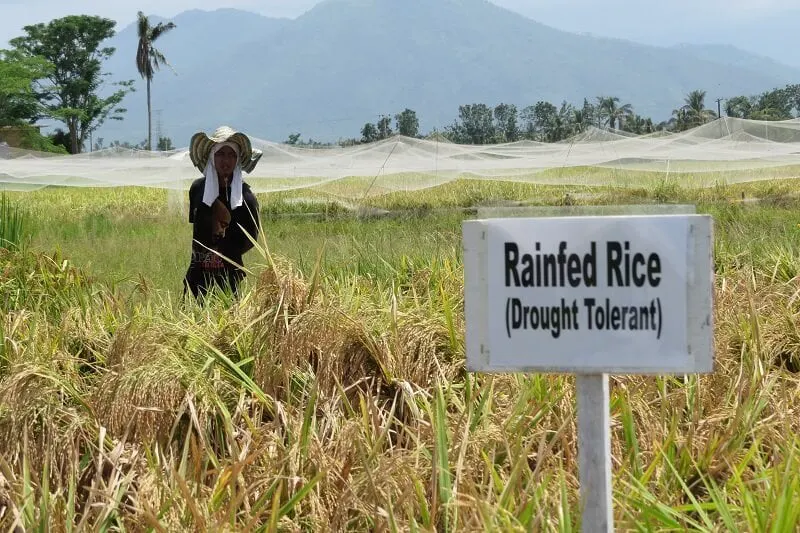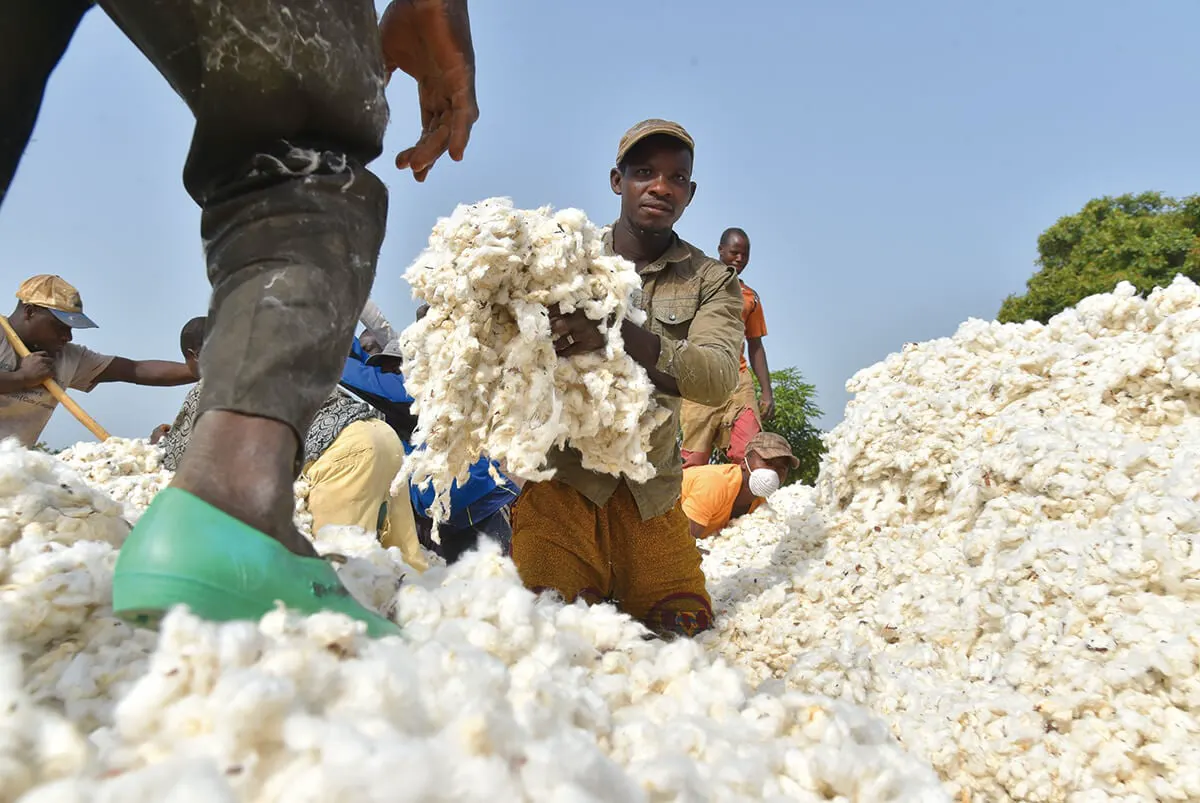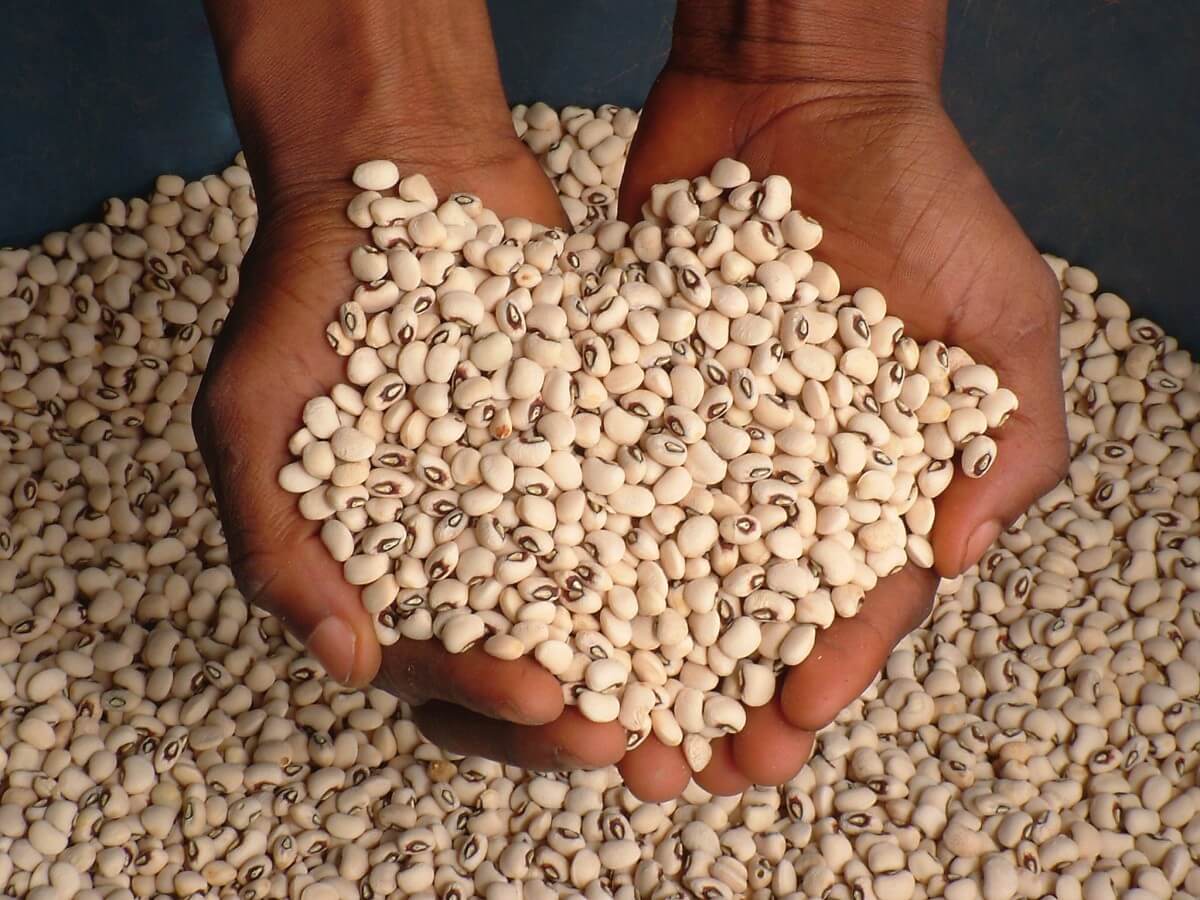Nigeria has approved GM insect-resistant Bt cotton and cowpea. Could drought-tolerant rice and disease-resistant cassava be next?
Nigeria has approved GM insect-resistant Bt cotton and cowpea. Could drought-tolerant rice and disease-resistant cassava be next?


Although the entrepreneurial farmer left fashion years ago to grow rice, soy, maize and vegetables on her 500-hectare farm in northwest Nigeria, her heart went out to those whose livelihoods were impacted by the cotton-destroying bollworm.
“The cotton industry in Nigeria was completely crippled by bollworms,” she recalled. “The textile industries shut down and our nation of 200 million people depends entirely on cotton imports.”
In search of a solution, Koku began urging Nigerian officials to approve the country’s first genetically modified (GM) crop — insect-resistant cotton. That effort bore fruit in July 2018 and now Koku is among thousands of Nigerian farmers hoping to achieve the same high yields and reduced pesticide use that GM cotton growers have achieved elsewhere in the world.

“Going into farming, I found that people did things a certain kind of way for years,” Koku said. “Even if it didn’t work, they kept at it. They were not willing to change. They weren’t willing to embrace new things. What I did differently was I tried out new things. We set up our farm in a way that we had R&D [research and development] on different sections. We would try out different things. Three years ago, we had fields that had probably six different varieties of corn in the same season. So, we kind of learned what works and what doesn’t.”
Koku next focused her advocacy on pushing for the adoption of GM cowpea, which has inherent resistance to the devastating pod borer (Maruca vitrata) pest. That effort also succeeded, and late last year Nigeria approved the world’s first GM cowpea, an important source of protein for millions of West Africans.

“GM crops will make a whole world of difference for Nigerian farmers,” she said. “It’s the dawn of a new day. We have finally gotten crops that we can plant and get excellent yields and a bumper harvest.”
The move was cheered as a way for Nigeria — the world’s largest consumer and producer of cowpea — to boost food security and end its reliance on imports by helping local farmers achieve better yields. Koku hopes to cultivate GM cowpea on her farm this year, saying the importance of an insect-resistant variety, which reduces pesticide use, can’t be overstated.
“Healthier plants mean higher yields and therefore more food on the table for Nigerians and ultimately less food shortage,” Koku said. “It also means improved farmer health because the more the farmers spray chemicals on their fields, the more their health is put at risk. Plant health is vital in order to ensure higher yields, less hunger, lower poverty levels and improved farmer health.”
She’s looking forward to trying other GM crops now under research, including insect-resistant maize, salt- and drought-tolerant rice that uses less nitrogen fertilizer and disease-resistant cassava.
“We have challenges with insects and pests,” she said. “It would be good to have a GM maize seed resistant to the fall armyworm. In the past two years, we spent a lot of money on pesticides trying to control the fall armyworm. A Bt [insect-resistant GM] crop would also be good for the farmers’ health because in our country, pesticide safety regulations are not observed properly by the farmers. Most times, you find that the farmers are spraying in their field without protective clothing and that makes them get sick. A Bt maize crop would really help us go a long way toward solving that problem as well.
“Now that we have access to GM crops in Nigeria, farmers will still have the option of growing hybrid or conventional varieties,” Koku continued. “What is likely to happen is people will plant both and see what does better or what gives a better yield or what costs you less and stick with those. I don’t see GM as being a threat to local or conventional.”
Justin Cremer is a professional communicator who has spent nearly two decades alternating between journalism and marketing/communications. Find Justin on Twitter @MrJustinCremer
A version of this article was originally posted at the Cornell Alliance for Science website and has been reposted here with permission. The Cornell Alliance for Science can be found on Twitter @ScienceAlly

 | Videos | More... |

Video: Nuclear energy will destroy us? Global warming is an existential threat? Chemicals are massacring bees? Donate to the Green Industrial Complex!
 | Bees & Pollinators | More... |

GLP podcast: Science journalism is a mess. Here’s how to fix it

Mosquito massacre: Can we safely tackle malaria with a CRISPR gene drive?

Are we facing an ‘Insect Apocalypse’ caused by ‘intensive, industrial’ farming and agricultural chemicals? The media say yes; Science says ‘no’
 | Infographics | More... |

Infographic: Global regulatory and health research agencies on whether glyphosate causes cancer
 | GMO FAQs | More... |

Why is there controversy over GMO foods but not GMO drugs?

How are GMOs labeled around the world?

How does genetic engineering differ from conventional breeding?
 | GLP Profiles | More... |

Alex Jones: Right-wing conspiracy theorist stokes fear of GMOs, pesticides to sell ‘health supplements’




 Trust issues: What happens when therapists use ChatGPT?
Trust issues: What happens when therapists use ChatGPT? California, Washington, Oregon forge immunization alliance to safeguard vaccine access against federal undermining
California, Washington, Oregon forge immunization alliance to safeguard vaccine access against federal undermining Fighting deforestation with CO2: Biotechnology breakthrough creates sustainable palm oil alternative for cosmetics
Fighting deforestation with CO2: Biotechnology breakthrough creates sustainable palm oil alternative for cosmetics Viewpoint — Fact checking MAHA mythmakers: How wellness influencers and RFK, Jr. undermine American science and health
Viewpoint — Fact checking MAHA mythmakers: How wellness influencers and RFK, Jr. undermine American science and health 30-year-old tomato line shows genetic resistance to devastating virus
30-year-old tomato line shows genetic resistance to devastating virus The free-range chicken dilemma: Better for birds, but with substantial costs
The free-range chicken dilemma: Better for birds, but with substantial costs Viewpoint: Video — Big Solar is gobbling up productive agricultural land and hurting farmers yet providing little energy or sustainabilty gains
Viewpoint: Video — Big Solar is gobbling up productive agricultural land and hurting farmers yet providing little energy or sustainabilty gains ‘You have to treat the brain first’:Rethinking chronic pain with Sanjay Gupta
‘You have to treat the brain first’:Rethinking chronic pain with Sanjay Gupta
